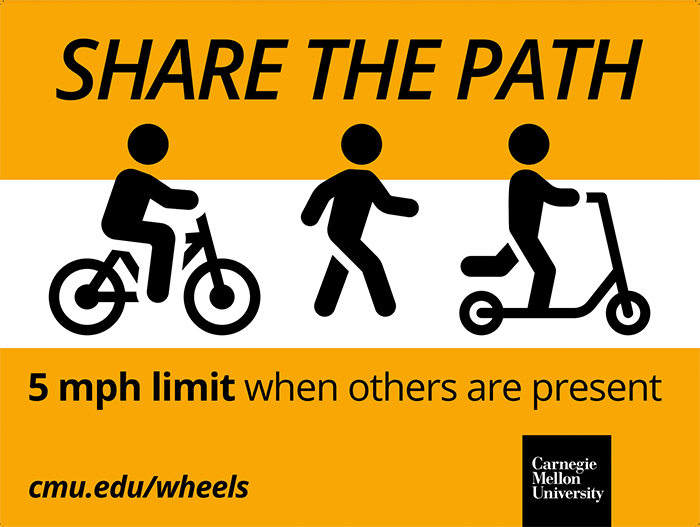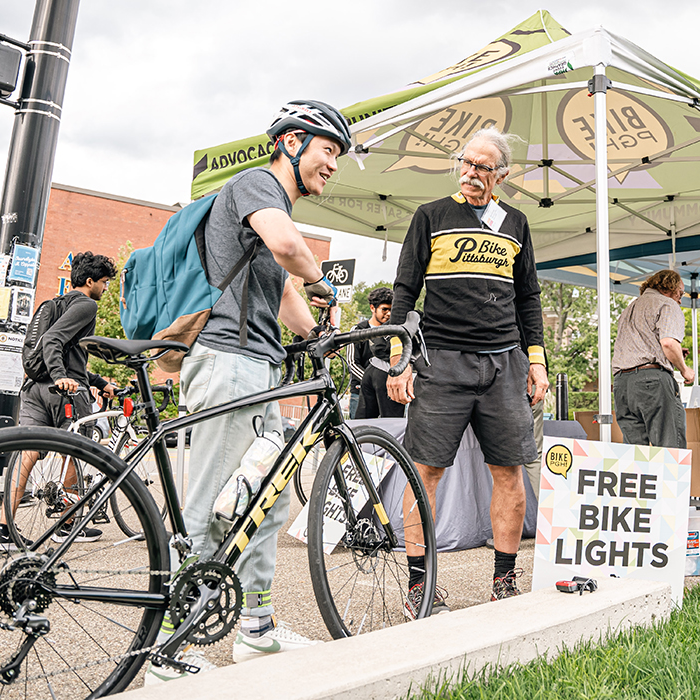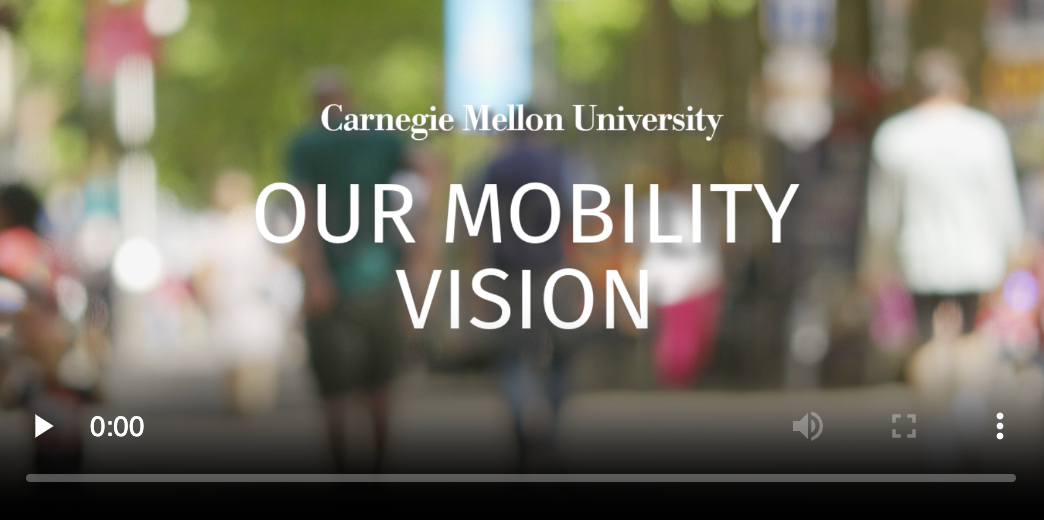Bikes and Wheels at CMU
Community members and visitors are welcome to use approved recreational personal wheeled vehicles – such as bicycles, skateboards, in-line skates, stand-up scooters and Segways – to safely navigate CMU's main campus. These vehicles are a great way to exercise, have fun, meet people and travel in an environmentally sustainable way. Keep reading for resources, events, guidance and even inspiration to help make it easier to ride your wheels at CMU!
The Basics
Whether you are a beginner or practiced rider, there are numerous bike and wheeled-vehicle resources to help enhance your riding experience.
Need a bike or repair assistance? Learn more about options for buying or borrowing riding equipment.
Want to improve your skills or learn about riding rules and requirements? Check out our wheeled-vehicle classes and education.
Getting Around
On Campus
Navigate Carnegie Mellon on your wheeled vehicle with the university's campus maps, or check out the location of campus bike and scooter racks and repair stations. If you use public transportation, University of Pittsburgh shuttles and Pittsburgh Regional Transit buses also offer bike racks to store your bicycle during transit. When using wheeled vehicles on campus, please follow the safety guidelines and requirements below.
Campus rules and safety guidelines
- Know before you go: read CMU’s policy on using personal wheeled vehicles on campus before you start your trek.
- Stay alert! Be aware of your surroundings and leave at least one ear headphone-free.
- Store your phone while riding to have both hands free to control your vehicle.
- Ride in a straight line so that others can predict where you are going.
- Wear a helmet to avoid serious injury.
- Follow speed limits. On campus, this means a maximum of five miles per hour while on paths shared with pedestrian traffic.
- Yield to pedestrians or bikes already in traffic circles and on paths.
- Stay to the right unless passing and pass only on the left, when safe to do so – announce your intentions ("On your left!") to help others be prepared.
- Remain on paved paths. No wheeled vehicle should be operated inside campus buildings, on access ramps, or in landscaped or grass areas.
- Observe official dismount zones and walk your vehicle whenever campus traffic is congested. To ensure the safety of all sharing campus pathways, CMU has implemented dismount zones – areas where riders should dismount and walk their wheeled vehicles – on its main campus. Learn more about CMU's dismount zones, wheels-only path and shared path.
- Protect your property – Try to store or lock your bikes and electronic scooters on designated bike racks and register your bike with the university so that we have its make, model and serial number recorded in the event that it is stolen.
Beyond CMU
Riding around Pittsburgh can be intimidating for cyclists with its steep hills and sometimes cold weather, but the city has a strong bicycle advocacy organization, an active cycling culture and over 100 miles of bike lanes and riverside trails, which are good for walking, too! (A paper copy of the trails map is also available at the Transportation Services office.) There is also a set of easy bicycle loops near CMU, created by CMU professors Mary Shaw and Roy Weil.
Learn more about bike and wheeled-vehicle classes, maps, equipment and programs.



